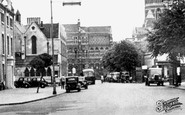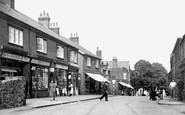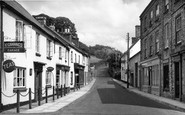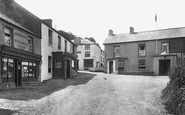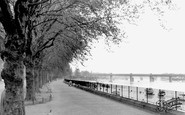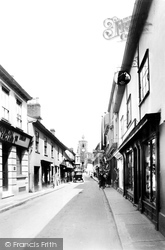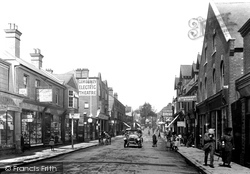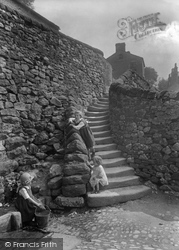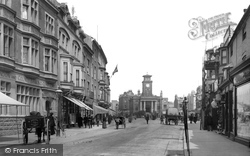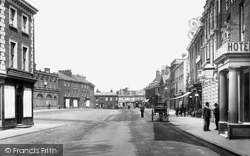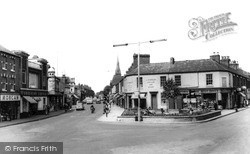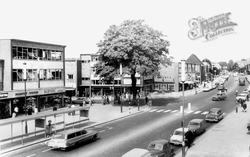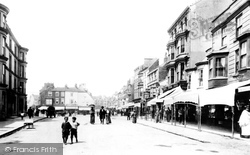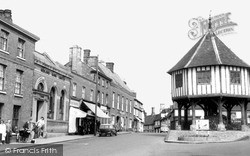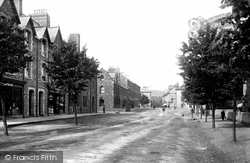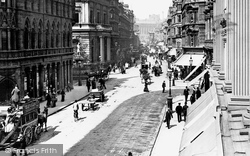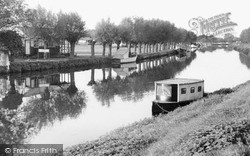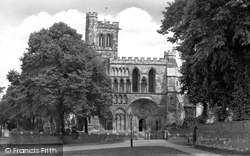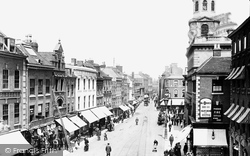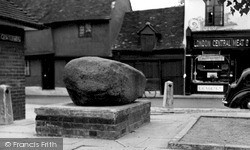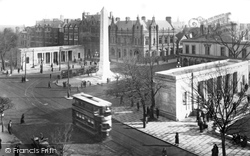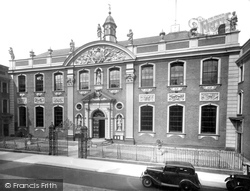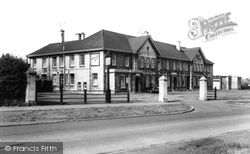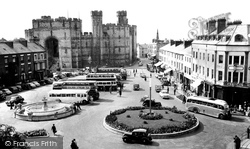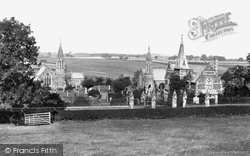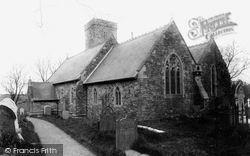Merry Christmas & Happy New Year!
Christmas Deliveries: If you placed an order on or before midday on Friday 19th December for Christmas delivery it was despatched before the Royal Mail or Parcel Force deadline and therefore should be received in time for Christmas. Orders placed after midday on Friday 19th December will be delivered in the New Year.
Please Note: Our offices and factory are now closed until Monday 5th January when we will be pleased to deal with any queries that have arisen during the holiday period.
During the holiday our Gift Cards may still be ordered for any last minute orders and will be sent automatically by email direct to your recipient - see here: Gift Cards
Places
26 places found.
Those places high-lighted have photos. All locations may have maps, books and memories.
- Town End, Derbyshire
- Town End, Buckinghamshire
- Town's End, Somerset
- Towns End, Dorset
- Town End, Merseyside
- Town End, Cambridgeshire
- Town's End, Buckinghamshire
- West End Town, Northumberland
- Bolton Town End, Lancashire
- Kearby Town End, Yorkshire
- Town End, Cumbria (near Grange-Over-Sands)
- Town End, Cumbria (near Bowness-On-Windermere)
- Town End, Yorkshire (near Huddersfield)
- Town End, Yorkshire (near Wilberfoss)
- Town End, Cumbria (near Appleby-in-Westmorland)
- Town's End, Dorset (near Melbury Osmond)
- Town's End, Dorset (near Swanage)
- Town End, Cumbria (near Ambleside)
- Town End, Cumbria (near Lakeside)
- Town End, Cumbria (near Kirkby Lonsdale)
- Town End, Cumbria (near Ambleside)
- Town's End, Dorset (near Bere Regis)
- West-end Town, South Glamorgan
- Townend, Derbyshire
- Townend, Strathclyde (near Dumbarton)
- Townend, Staffordshire (near Stone)
Photos
26 photos found. Showing results 1,201 to 26.
Maps
195 maps found.
Books
160 books found. Showing results 1,441 to 1,464.
Memories
3,720 memories found. Showing results 601 to 610.
St Matthew's Church Warwick Street
I lived in Rugby from 1949 to 1952 having had contacts with the town since the early 1940s. My brother and sister and I, as children, used to attend this church which is the cloistered building back left of the ...Read more
A memory of Rugby in 1950 by
Crawley Cof E Village School
I attended the small village school which was located a bit behind the George Hotel. The school was on a corner with a small park across the road. A vaguely victorian stone building .... and an incongruous copy of a ...Read more
A memory of Crawley in 1952 by
Neath William Phillips Family
I live in Newcastle, NSW, Australia. My relative, William Phillips was born in Neath and lived at 14 Company Street, Llantwit Fardre when married. He was a collier. He married 6/1875 Rachel Thomas (b.18/7/1852 Pontypridd ...Read more
A memory of Neath in 1880 by
Woodgate
I too was brought up in Rothley. I lived at 72, Woodgate. At the time it was the local telephone exchange, operated manually, my mother being the night operator. I remember George Hunt well, along with the Elkingtons, I used to get my ...Read more
A memory of Rothley in 1951 by
My Childhood In Astmoor
I lived in Astmoor with my grandparents. My grandma sold sweets, pop and cigarettes. I went to Halton School and walked down Astmoor Lane which we called Summer Lane. Grandad worked at Astmoor tannery. We lived next to Ivy ...Read more
A memory of Astmoor in 1956 by
Morris Dancing After The Fair At Bampton
I went along on Saturday 1st November and watched Devon based Grimspound Border Morris perform outside "The Swan" along with three other teams of dancers including Sweet Coppin clog dancers from Taunton to ...Read more
A memory of Bampton in 2008 by
My Memories Of Ferryside
I'm only fourteen but still I have some amazing memories of Ferryside, generations of my family have lived here and i'm planning never to leave. Me and my mam, we're looking through all the pictures and everything seemed so ...Read more
A memory of Ferryside
Living On Elmer Road Middleton On Sea 1962 1974
I lived there as a young child from about the ages of 2-14 years old (1960-early 1970s). As a young child Elmer Road seemed to be at the end of the world. The main road heading east hit a ...Read more
A memory of Middleton-on-Sea in 1969 by
Pea Shooter And Buses
It was about 1953 when we discovered pluffers and ca caws. The pluffer was a device we used for a pea-shooter. This was a straight stem from a weed and it was about an inch or so in diameter, hollow through the centre and ...Read more
A memory of Newburn in 1953 by
Wandsworth Town Hall
My great-grandfather was the Wandsworth Town Hall Keeper at the old Town Hall until about 1929, and my mother was born in the building. Later they moved to the Municipal Buildings where my grandfather took over the role from ...Read more
A memory of Wandsworth in 1952 by
Captions
5,111 captions found. Showing results 1,441 to 1,464.
Diss, this small, stylish town on the Suffolk border, evolved around a six-acre pool called Diss Mere, which penetrates almost to the edge of the main street.
Originally called Cambridge Town, in honour of the Duke of Cambridge who founded the Army Staff College here, its name had to be changed to avoid confusion within the postal service with its university
In this town we will find a fascinating mixture of alleyways, courtyards and shambles.
The towered and porticoed Town Hall which closes the vista, a fine Classical building of 1834, subsequently lost its tower and has now been completely demolished: this is a great loss to the town's architecture
This is the most central town in Norfolk. This view shows the varied façades of the buildings fronting the market place. The building next to the King's Arms Hotel on the right is a good example.
Beyond Victoria Square the town expanded along Gateford Road and Carlton Road towards the railway station, which opened in 1850; it is stone-built in a Jacobean style.
The central thoroughfare of the New Town of Hemel Hempstead, in the prosperous mid-sixties when we'd reputedly 'never had it so good'.
The old town is in fact one mile inland from the sea, where in 1119, Walter de Grant founded an Augustinian priory.
The entire heart of the town has been moved over the hill to a new site, so that the little that remains of the old High Street is now totally run down.
This pleasant market town sits on the road from Thetford to Norwich, and was once a resting place for pilgrims – it still has a fine Guild Chapel dedicated to St Thomas à Becket.This well-maintained timbered
The new seaside resort was mostly laid out south of the old town on flatter land between the Lower Town, largely destroyed by fire in 1791, and the sea.
This view looks towards the Town Hall. It cost one penny to travel the length of New Street by horse-drawn omnibus, while a Hansom cab cost somewhat more.
The name of the town does not refer to any beach, but comes from the Old English word 'beck', meaning 'stream'. Clayhithe was the harbour of Waterbeach; the word 'hythe' means 'landing-place'.
King Henry I founded an Augustinian priory here in 1131, built a palace and established a new market town that rapidly became a place of considerable importance.
This view looks along Foregate Street; the bridge carrying the Great Western Railway lines to Hereford and South Wales can be seen in the background.
But the most impressive Victorian building in Sheffield was the new town hall on the corner of Surrey Street and Pinstone Street, where an area of old housing had been demolished to make way for
It is said that the town took its name from Lady Roysia's Stone, and that the stone itself was the base for the Market Cross.
Here we see the obelisk and twin colonnades of the town's war memorial in the year it was consecrated.
Incredibly, the Guildhall only narrowly escaped demolition in the 1870s, when Alfred Waterhouse (architect of Manchester Town Hall) presented a plan for its replacement.
The Strangeway Estate had been bought around 1859 for the purpose of building a gaol and these courts.
Situated in Rockingham Road, this grand building soon became a major landmark of the nascent industrial town when it appeared on the scene in 1936.
The great castle of Edward I overpowers this scene as, of course, it was originally intended to do, and its distinctive polygonal towers distinguish it from other castles that Edward built.
As we leave the town in an easterly direction towards Skelton, our last view of Guisborough, and the resting place of generations of Gisborians since being opened in 1872, is the town's cemetery.
St David's, Prendergast, occupies a commanding position, overlooking the Cleddau River and the town of Haverfordwest.
Places (26)
Photos (26)
Memories (3720)
Books (160)
Maps (195)



